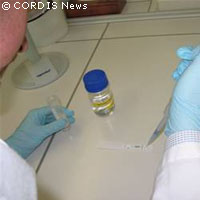JRC and Turkey strengthen cooperation ties
The European Commission's Joint Research Centre (JRC) and Turkey have signed a Memorandum of Understanding (MoU) to increase research cooperation in the areas of food safety, energy and chemicals. Under the agreement, Turkish research organisations will be given the opportunity to participate in activities at the JRC. The agreement focuses on cooperation in the key areas of environment and health; food and feed safety and quality; security; energy (including nuclear safety and security); agriculture; and chemicals. In addition, the JRC will host up to 20 jointly-selected Turkish PhD or post-doctoral students at its specialised research institutes, located across the EU (Belgium, Germany. Italy, the Netherlands and Spain).These stays will be funded by TÜBITAK, the Scientific and Technological Research Council of Turkey. 'EU Research Policy can only realise its full potential when it has the appropriate links with scientific and technical organisations at international, national and regional level,' commented JRC Director-General, Roland Schenkel. 'Turkish organisations are clearly committed to playing their part and we are confident that this Memorandum of Understanding will act as a catalyst for even greater cooperation. We are particularly happy that young Turkish researchers will be given the opportunity to work at our research institutes.' Turkey is also convinced of the benefits that the agreement will bring. 'This agreement will contribute to the better integration of Turkish R&D [research and development] Institutions within the European Research Area. It will enable Turkish researchers from different disciplines to conduct joint projects and will facilitate staff and information exchange with the JRC,' said Professor Nuket Yetis, Acting President of TÜBITAK. 'On a broader level, this agreement will support Turkey's participation in EU Research Programmes and will help promote the potential of Turkish research, technology and innovation throughout Europe,' he added. The JRC and Turkish research partners already have some experience of working together, having collaborated in eight institutional networks and eight projects of the Sixth Framework Programme (FP6). In addition, 15 Turkish researchers are currently working at JRC institutes, while 161 Turkish experts were trained in JRC organised workshops in 2006.
Countries
Türkiye



